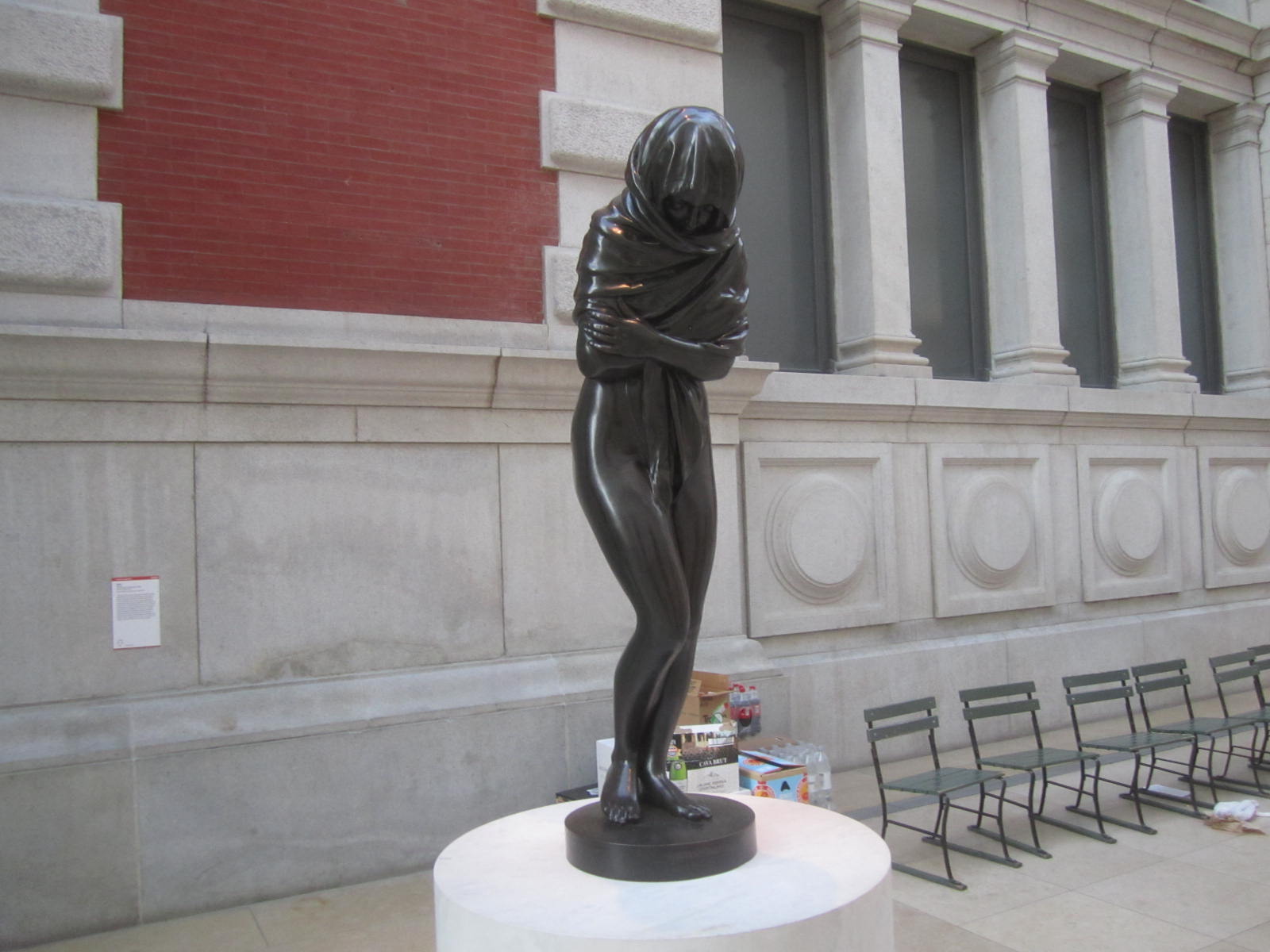The One I Forgot to Forgive
“O remember not against us former iniquities: let thy tender mercies speedily prevent us: for we are brought very low.”
Psalm 79:8 KJV
Sometimes the hardest part of making a mistake is not the guilt of messing up, but realizing that you let others down. It can eat at your soul and soon it can consume you. This is especially true when you feel that you always have to be at the top of your game.
Sometimes we feel that there are standards of perfection that we must measure up to. If we fail to maintain those standards, it is not just a failure, but a disappointment to those who we have tried to impress. An unforgiving guilt clouds our self-esteem.
If you want to understand this feeling, there is no better occupation than sales to magnify it. In sales, you are only as good as your last quarter, or last month, or last year. Those who pat you on the back one day are questioning your drive and intentions the next day. What you did in the past is of little importance to what has happened in the present.
So when the tall block castle, you have worked so hard to build, comes crashing down, what are you supposed to do? There is a big pile of blocks there and the time invested in them seems to have been wasted. It’s hard to imagine that the castle can ever be rebuilt.
“Arthur’s dead,” were the heartbreaking words that floated across this future President’s ears. Arthur, like him and two of his other three brothers, had been named for English kings. Despite his mother’s fascination with the English monarchy, their family unit was anything but royal. From a financial standpoint, they would always struggle.
Frank, the father, was a hard worker, but always seemed to have a smart aleck attitude. Time and again, he would lose a job and have to look for another one. Hannah, the mom, came from a pretty well-to-do middle class family. Most of her relatives were unhappy when she decided to take up Frank’s offer to get married just four months after they met.
Frank had a good heart, but he also had a temper at times. Frank’s mom died when he was just eight years old. It was bad enough that his family lived in poverty, but when his dad remarried a woman, who would turn into a harsh stepmother, it was more than Frank could take. Frank would run away from home when he was just thirteen years old.
Frank bounced around from job to job. One of the jobs he found came when he moved to a small Quaker town. It was here that Frank’s eyes met the beautiful young Quaker girl. Hannah, who had a heart of gold, must have looked at Frank as a project, because no reasonable person would have ever put the two of them together.
Eventually, Frank found, what he thought was the end of this vicious cycle of jobs that led nowhere. He was talked into buying some land that would be perfect for growing lemons. He was told the weather was always wonderful and he would never have to worry about freezing, which is devastating to lemon trees.
Unfortunately for Frank, year after year of cold weather destroyed his lemon farm. You really can’t say it ruined the family fortune, because there really was no fortune to ruin. Years later, the future President would quote another President by saying, “We were poor, but the glory of it was, we didn’t know it.”
In the land we call Biblical Times, there lived a young man. His was not an easy life. Hard work and callous hands toughened his ego. He had to present himself as confident or else everyone would think of him as weak. He wouldn’t last long in his trade if that happened.
One day someone offered him a different job. This job was nothing like the job he grew up in. It’s not that this new job wasn’t hard work, it just didn’t require the backbreaking work his previous job entailed. Strange as it may seem, though, he carried his same tough ego with him when he accepted the challenges of this new job.
The young man thrived in his new job. One day, with all his fellow coworkers hanging around, the boss announced that he had so much faith in the young man that he was going to use the young man and his example to build his business. This strengthened the young man’s ego even more.
Everything was going great. The young man was at the top of his game. Business was good. One day the boss called all the employees into a luncheon. He told them that the business was on the verge of collapse. One by one, each of them told the boss, “You’re nuts. We are never going to let this business fail.”
Sadly, the boss told them that what he said was true. Again, “We will never let it fail!” was their response. “Not only is it going to fail,” the boss continued, “but every one of you is going to jump ship.” The young man could take it no longer. The young man scolded the boss, “Even if every one of them turns their back on you, I never will!”
Looking the young man straight in the eyes, the boss turned to the young man and said, “You will be the worst of them all. All the others will run and hide. You will angrily deny that you were even employed by me several times. You will see what I say is true when the sirens go off in the morning.” Very indignantly, the young man walked away.
Sure enough, a panic struck and the business came crashing down shortly after the boss’ announcement to his employees. To make matters worse, the young man behaved just like the boss predicted. Worried about himself, the young man denied, over and over again, that he was ever employed by the boss.
Sometimes we expect our Presidents to be some sort of super hero. We often forget that their life’s story is full of challenges, just like our own lives. Their character, much like our own, gets shaped by the events that surround them, especially when they are young. What we see as scars, or flaws, is just how they have taught themselves to deal with the pain or failures of their past.
To look at this President, you may see one who was far from perfection. If you take a magnifying glass, you might have a better understanding as to why he responded the way he did to things.
Growing up poor is not a crutch you can lean on as an excuse, but it was the start to the character building of this President. At one point in his life, his brother, Harold, was able to join the scouts. When he expressed an interest in doing the same, his mom and dad simply told him “No.” The reason was they couldn’t afford to buy another kid a uniform and the very small dues that were required to be a member.
His mom and dad tried to compensate for their lack of financial strength by pushing their kids to learn. They knew that a good education was the only real way their kids were ever going to escape the poverty they lived in. This future President took to this mindset with all his efforts.
The future President excelled in school and when it came time for college, well, Harvard and Yale both wanted him. He was offered a scholarship to Harvard, but had to decline because the family could not afford the room and board, which was not part of the scholarship offer. He would attend a local college.
He was also not very popular at school. He was given the nickname “Gloomy Gus.” He once tried to change his image by buy and reading Dale Carnegie’s book, How to Win Friends and Influence Enemies. You see, he didn’t play sports. Once, when he got sick, the doctor’s noticed something on his lungs and there was fear that he might have the same thing that killed his brother, Arthur. In a precaution, the doctors thought it best for him to not be involved in sports.
He got into his studies instead. He joined the debate team and he was really good at that. He was awful around girls, though. They preferred the jocks. “That was okay, though,” he told himself, “I don’t like them either.”
Once he ran for class president. The way this usually worked was that the teachers would pick two candidates and the classmates would vote for one of them to become president. He was by far the favorite choice, a shoe-in, in fact. But another student maneuvered around the system and entered the race. That student was one of the popular jocks. The jock would win, stealing the election from this future President. It wouldn’t be the last time he would have an election stolen from him.
There comes a moment, just before you realize your failure is here, that you try to justify your behavior. You can think of a thousand reasons why you have every right to behave that way. But then, just like the young man in the Bible, the siren goes off and you are caught up in the stupidity of the choice you chose to make.
When the young man realized how stupid his choice was, it was too late. It could not be taken back. Forever in history would mark the blocks crumbling. And the young man knew it. He was crushed and he was remorseful. None of that helped because he knew things could never be the same again.
After Jesus died on the cross, Peter decided to go back to doing what he did before he let Jesus down. He went fishing. As if he wasn’t feeling bad enough, there were no fish to be caught. From the shore a lone man yelled to Peter and his crew to cast their nets on the other side. “It’s no use. We have been here all day,” was Peter’s thoughts. But for some strange reason, Peter decided to humor the guy.
When the crew cast the nets to the other side, there were more fish than they could count. The crew was overjoyed, but Peter then knew who the man on the shore was. Jumping in the water, Peter wanted to get to Jesus as fast as he could.
I’m sure Peter wanted to tell Jesus how very sorry he was that he let him down. I’m sure Peter wanted to hear Jesus say, “That’s okay. I forgive you.” The Bible doesn’t really tell us what that initial conversation was.
Later, though, there is a recorded conversation Peter has with Jesus. Three times, the exact number of times Peter denied even knowing Jesus, Jesus asked Peter if he loved Him. Peter starts to get a little irritated by Jesus asking him the same question over and over again.
Why did Jesus ask Peter three times if he loved Him? After all, Jesus knows everyone’s heart, so he knew Peter really loved Him. Many have speculated on this answer. Personally, I believe Jesus asked Peter three times, one for each of his denials of not knowing Him, because Peter needed to convince himself that his love was genuine even though he screwed up and felt he didn’t really deserve the forgiveness Jesus was offering him.
Sometimes people make very big mistakes. Sometimes the guilt of those mistakes consumes their soul. They believe their world will never be the same. They want the forgiveness of the one they have harmed. Often they forget to forgive the one person who can do the most to turn around their lives. They forget to, or refuse to, forgive themselves.
I think if Jesus did not appear to Peter again, Peter would have been in a deep depression for the rest of his life. You see, Peter understood that there was no justified reason for Jesus to forgive him. Betrayal is one of those things you just don’t forgive. Jesus taught Peter that is was not just His forgiveness he needed to accept, but Peter needed to forgive himself and move past it.
When Richard Nixon’s brother, Arthur died, when Nixon was in eighth-grade, it was a turning point in his life. In his eighth-grade class essay titled “Autobiography,” he would write: “My plans for the future if I carry them out are to finish Whitter High School and College and take post graduate work at Columbia University, New York. I would also like to visit Europe. I would like to study law and enter politics for an occupation so that I might be of some good to the people.”
Richard Nixon was sent to live with an Aunt for a little while. There was a hope that, by going to another school, Richard would pick up a musical ability. Although, Nixon became quite good on the piano, music was just not his thing.
Young Arthur had gotten quite sick while Richard was away. When Richard came back home, Arthur was so excited to see his brother again. Arthur pleaded with his parents to let him just kiss Richard. They said it would be okay if it was okay with Richard. Of course, Richard said it was okay. Now the brother that adored him so was gone. Richard was going to make something of his life to help hide the pain he was feeling.
Sometimes betrayal, failure, disappointment, and a host of other issues come into our life. Our thoughts turn toward the question of “Are you sure it is okay to forgive the one who did this to us?” After all, those negative actions really hurt and we don’t want to be hurt again. If we forgive them, are we just going to look foolish if they let us down again?
Jesus looked like the biggest fool on earth when He hung on the cross. The nails that pierced His body hurt with more pain than most people will ever feel. The mocking crowd, that betrayed all the good He had ever done, must have torn at His soul. All that He endured at that one moment had but a single purpose: to grant us a forgiveness we never deserved.
Those with remorseful hearts can also learn a valuable lesson: if God can forgive you, it’s okay to forgive yourself. Seek the forgiveness of those you have harmed, but even if that apology is not accepted, forgive yourself. Prove your remorse by changing your ways. Don’t listen to those inner thoughts that an evil person like you cannot change.
Negative events, like Arthur Nixon’s death, can have a profound impact on our lives. They are situations beyond our control, yet, for some strange reason, we feel we need to repay something. Maybe we could have said something, or done something that could have stopped it, or, at the very least, made it better. We didn’t deserve to be admired. We deserved to be in Arthur’s place more than Arthur did.
That’s not how it works. God taught us that the next step in forgiveness is to accept that forgiveness, even if that involves forgiving ourselves.
Prayer: Dear Mighty Father, As I look over my life, I see many reasons why You should never forgive me. Yet, You do. Please help me to extend that same forgiveness to others. Help me to also be strong enough to forgive myself, do better, and move on past it. Amen.



